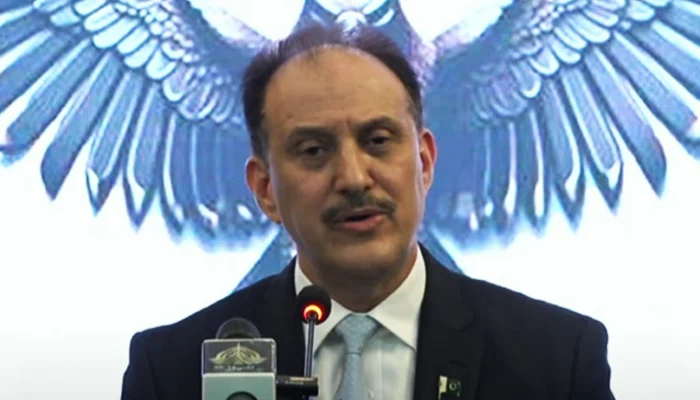A major breakthrough came in Karachi when the Counter Terrorism Department (CTD) announced the arrest of six suspects linked to India’s intelligence agency, the RAW network. Officials said the suspects were operating safe houses and carrying out targeted killings, exposing what they called state-sponsored terrorism on Pakistani soil.
CTD Operation in Karachi
CTD Additional Inspector General Azad Khan confirmed that the operation was conducted in coordination with federal intelligence agencies. The arrests, made on July 8, followed the killing of Abdur Rehman, a 45-year-old barber and welfare worker, in Badin on May 18, 2025.
According to investigators, the suspects had been working under the instructions of RAW handler Sanjay Sanjeev Kumar, also known as “Fouji,” who is based in a Gulf state. The handler remained in direct contact with the group, guiding them throughout the operation.
Surveillance Before the Attack
Before executing the murder, the suspects carried out a detailed reconnaissance. For five days, they observed the victim’s routine in Matli, Badin. Eyewitnesses and CCTV footage later confirmed the presence of at least three of the arrested suspects at the crime scene.
Khan said that after the killing, Indian media celebrated the murder, which further confirmed RAW’s involvement.
Key Figures Behind the Plot
The arrested men were identified as Amir Asghar, Sajad, Obaid, Shakeel, Arslan, and Talha Umair. Investigations revealed that Salman, another suspect now on the run, played a key role in forming the gang. He recruited Umair, Sajad, Obaid, and Shakeel to carry out the mission.
After the attack, Salman fled to Nepal, while his team members remained in Karachi and Hyderabad.
Financial Trail of RAW
Investigators traced the money trail and found that RAW had financed the operation through cross-border bank transfers. Handler Sanjay transferred funds from Gulf states to Salman, who then distributed them among his associates.
The suspects stayed in a hotel in Hyderabad for five days before moving to Matli to complete the operation. The financial transactions left behind clear proof of terror financing, leading authorities to register a separate case.
Weapons and Evidence Recovered
During the arrests, law enforcement recovered two pistols, including a 9mm and a 30-bore, along with mobile phones and a motorcycle used in surveillance. Authorities also seized travel records, communication data, and other material linking the suspects directly to RAW.
Khan emphasized that the suspects had confessed to working for the Indian agency. Their travel history, financial links, and coordination with their handler formed undeniable evidence.
Victim Targeted for Welfare Work
Abdur Rehman, the victim, was not a political activist but a local barber known for his social and welfare contributions. He was attacked outside his shop after being closely monitored. CTD confirmed that the suspects began observing him on May 13 before carrying out the assassination on May 18.
The murder, investigators noted, was not only a violent crime but also part of a broader strategy to spread fear and unrest in the region.
Read: Ishaq Dar makes historic visit to Dhaka after 13 years
Use of Proxies
CTD further revealed that RAW had exploited a banned separatist group to execute its plan. The proscribed outfit acted as a proxy, providing cover and local support for the operation.
Khan said these findings showed how state-sponsored terrorism is orchestrated through local networks. He warned that such actions directly threaten Pakistan’s internal security.
Pakistan’s Response
Khan assured that Pakistan would take the matter to international forums. He called RAW’s involvement a “clear case of state-sponsored terrorism” and vowed to expose India’s role globally.
He also noted that more arrests were expected as investigations into financial records, recovered evidence, and the suspects’ testimonies continued.
Broader Implications
The busting of the RAW network in Karachi highlights how external actors attempt to destabilize Pakistan through covert operations. Officials said the case demonstrates the need for stronger vigilance against terror financing and foreign-backed networks.
With the CTD’s findings, Pakistan plans to intensify diplomatic efforts to raise awareness of foreign-sponsored terrorism, while law enforcement continues to track down the remaining members of the network.
Follow us on Instagram, YouTube, Facebook,, X and TikTok for latest updates
